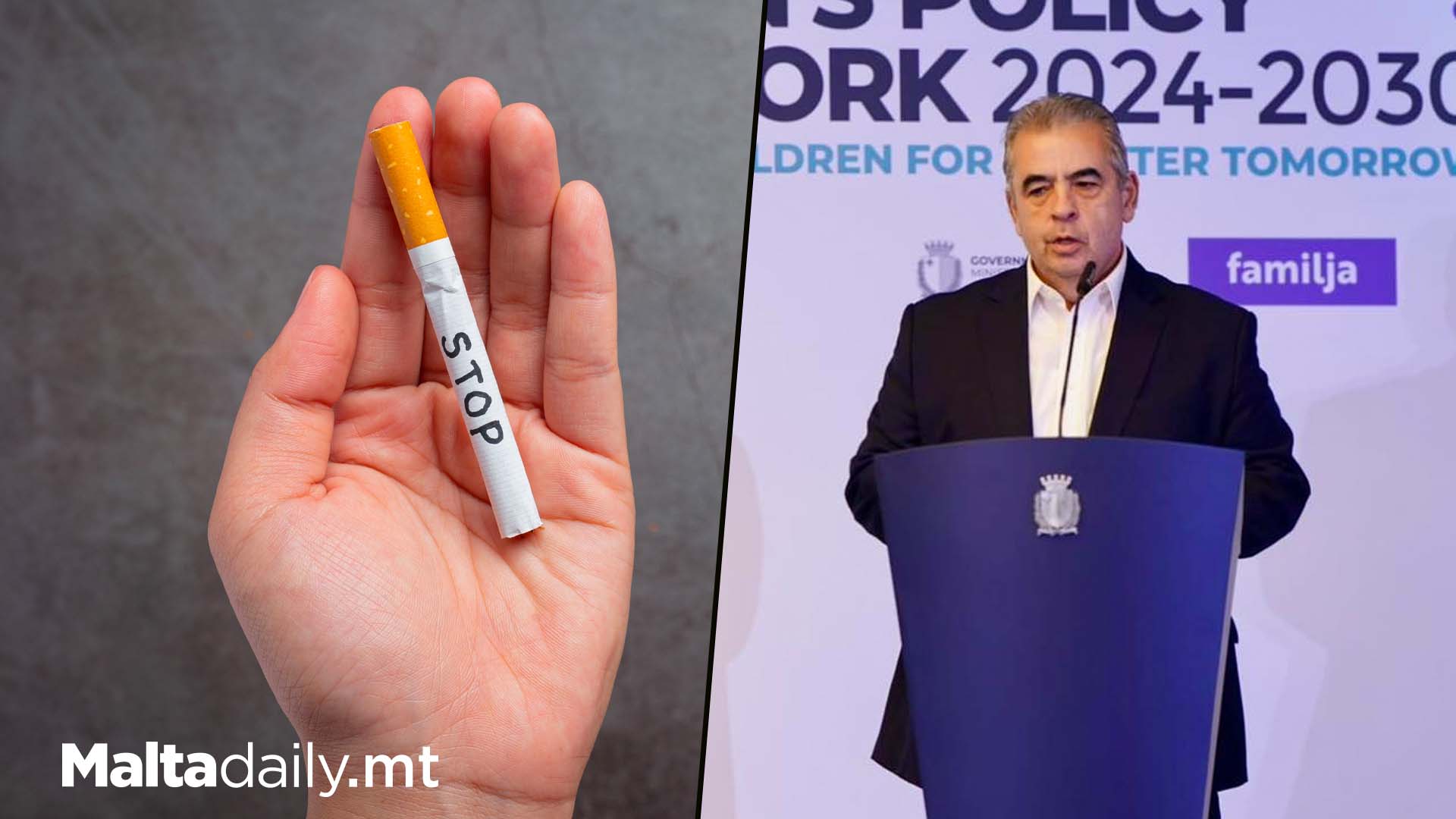“Start Discussions To Ban Cigarette Sales For Youth In Malta”

The government is advocating discussions to prohibit the sale of cigarettes to individuals born after a specific date, marking the inception of a potentially smoke-free generation.
This proposal is outlined in a public consultation document released by the Ministry of Social Policy and Children’s Rights on Monday.The suggested measure urges national-level deliberations to ban cigarette sales to individuals born after a collectively determined date, aiming to positively impact the health of forthcoming generations.
Part of a comprehensive vision to enhance child well-being over the next six years, this proposal is one of 198 measures disclosed in a Children’s Policy Framework document presented at a conference. While lacking specific details, if enacted, this ban would initiate the elimination of tobacco smoking.
Notably, the UK government recently implemented a similar measure, describing it as a groundbreaking law prohibiting cigarette sales to those born on or after January 1, 2009. Positioned as a significant public health intervention, the UK anticipates saving lives and reducing healthcare costs.
This initiative follows New Zealand’s comparable anti-smoking legislation, aligning with broader goals to achieve a smoke-free status by 2025. However, the smoking prevalence among Maltese citizens remains high, as indicated by a 2021 EU-wide survey, revealing that Maltese smokers exhibit one of the highest daily smoking rates in the bloc.
Despite these efforts, a local study found that a majority of children in Malta had detectable levels of second-hand smoke, contradicting parental reports of non-exposure at home. Read full document here.
#MaltaDaily


